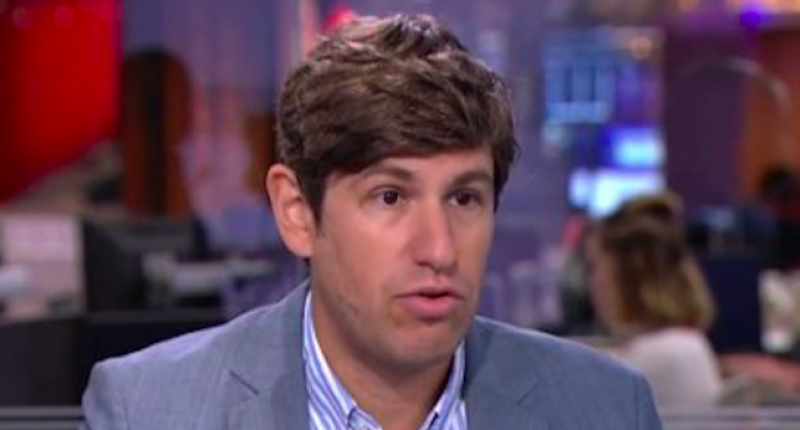-
Tips for becoming a good boxer - November 6, 2020
-
7 expert tips for making your hens night a memorable one - November 6, 2020
-
5 reasons to host your Christmas party on a cruise boat - November 6, 2020
-
What to do when you’re charged with a crime - November 6, 2020
-
Should you get one or multiple dogs? Here’s all you need to know - November 3, 2020
-
A Guide: How to Build Your Very Own Magic Mirror - February 14, 2019
-
Our Top Inspirational Baseball Stars - November 24, 2018
-
Five Tech Tools That Will Help You Turn Your Blog into a Business - November 24, 2018
-
How to Indulge on Vacation without Expanding Your Waist - November 9, 2018
-
5 Strategies for Businesses to Appeal to Today’s Increasingly Mobile-Crazed Customers - November 9, 2018
GOP voting restrictions struck down in three states
The 4th U.S. Circuit Court of Appeals overturned North Carolina’s voter-identification law Friday, acknowledging the state’s history of racial and voting discrimination.
Advertisement
On Friday [July 29] a federal appeals court blocked legislation in North Carolina that requires voters to show identification after discovering that it disproportionately affected voters of color in comparison to their white counterparts, making it more hard for Black voters to cast their ballot. Other courts halted measures in Kansas that would have applied strict citizenship requirements and in Wisconsin that placed limits including the times when absentee voting is allowed.
The three rulings came as the 2016 election moves into its final phase with Republican Donald Trump and Hillary Clinton locked in a high-stakes presidential race and control of the U.S. Senate possibly hanging in the balance.
The 4th Circuit U.S. Court of Appeals nixed North Carolina’s voter ID law, but Republicans are vowing to fight it all the way to the U.S. Supreme Court.
“We can not ignore the record evidence that, because of race, the legislature enacted one of the largest restrictions of the franchise in modern North Carolina history”, 4th Circuit Court of Appeals Judge Diana Motz wrote.
The judges wrote that in the years before the North Carolina law took effect, registration and participation by black voters had been dramatically increasing. They said the law would have an outsized impact on the state’s African-American population, who they said are more likely to vote during early-voting periods and use same-day registration.
A spokesman for the state Department of Justice, which defended the laws, said the agency plans to appeal to the 7th U.S. Circuit Court of Appeals, though attorneys were still reviewing the 120-page decision Friday evening. However, it’s highly unlikely that the courts will reinstate the voter ID laws or other voting-related amendments ahead of election day. Nearly immediately after the law was signed, lawsuits were filed in which it was stated that the new North Carolina law made it harder for minorities to vote in the state.
The court called it “the most restrictive voting law North Carolina has seen since the era of Jim Crow”.
And in Wisconsin, a federal judge effectively prohibited that state from requiring voters to have photo identification when they vote.
The court said the North Carolina provisions targeted African Americans with “almost surgical precision”.
File-This June 21, 2016, file photo shows North Carolina NAACP president, Rev. William Barber, center at podium gesturing during a news conference in Richmond, Va.
The state has appealed the ruling.
Gov. McCrory and the General Assembly leadership promised to appeal the decision.
But Governor Pat McCrory and the leadership of the North Carolina General Assembly took umbrage with such assertions.
These measures required voters to cast ballots in person with a photo ID, curtailed early voting, and “eliminated same-day registration and voters’ ability to cast out-of-precinct provisional ballots in their home counties”, NBC News explains. It will not affect Wisconsin’s upcoming August 9 primary but will take effect for the November 8 presidential election unless overturned on appeal.
With that info, lawmakers proceeded to change an existing N.C. voting bill so that it excluded many forms of ID blacks did possess, while making acceptable the kinds of ID whites possessed most.
Peterson ordered the state to quickly issue credentials valid for voting to anyone trying to obtain a free photo ID for voting but lack the underlying documents such as birth certificates to obtain one. “Identifying and restricting the ways African Americans vote was an easy and effective way to do so”, the court stated.
Advertisement
Separately in another swing state, Wisconsin, a federal judge found that parts of a law concerned “with mostly phantom election fraud leads to real incidents of disenfranchisement. particularly in minority communities”. Republicans also point to other court decisions where judges have upheld the North Carolina as an example of how to guard from fraud while maintaining the basic right to the franchise. His law firm has successfully challenged similar voting restrictions across the country.





























